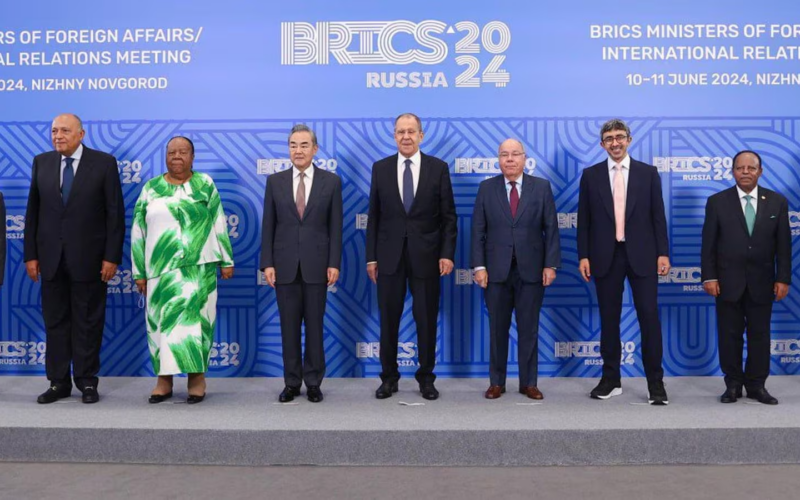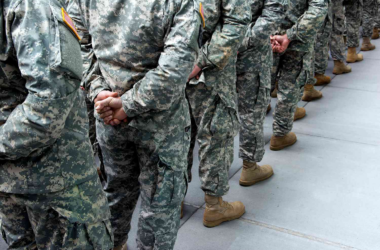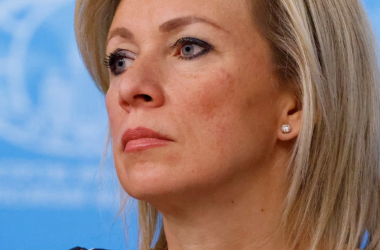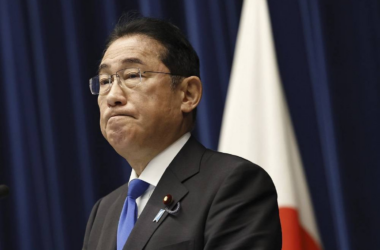The BRICS alliance, comprising Brazil, Russia, India, China, and South Africa, has decided to pause the expansion of its full membership. Instead, it will engage interested countries through a ‘partner state’ model, a significant shift announced during a foreign minister-level meeting in Nizhny Novgorod, Russia, on Monday.
Policy Decision on Membership
The decision not to admit new full members but to engage through partnerships reflects internal dynamics within the bloc. Notably, countries like Bangladesh, which have shown interest in joining BRICS, were invited to participate as partner states rather than full members. This marked the first time Bangladesh was invited to a BRICS foreign ministerial meeting, indicating a new level of engagement without extending full membership.
Russian Foreign Minister Sergey Lavrov extended a formal invitation to his Bangladeshi counterpart Hasan Mahmud on June 1. However, Bangladesh was represented by Social Welfare Minister Dipu Moni due to Mahmud’s prior engagement in Saudi Arabia. Foreign Secretary Masud Bin Momen stated that Moni’s attendance was arranged because of the scheduling conflict.
Dynamics within BRICS
The internal debate on the expansion has revealed contrasting views among the BRICS nations. Reports from The Hindu Business Line suggest that India, concerned about a shift in the bloc’s power balance favoring China with the inclusion of new members, advocated for a slower admission process. India fears that a rapid expansion could strengthen China’s influence and transform BRICS into a counterweight to the G20 and other Western-aligned groups.
In contrast, China appears supportive of expanding BRICS, possibly viewing it as a way to bolster its geopolitical influence. For instance, during a meeting with Bangladesh’s foreign secretary in Beijing on June 3, Chinese Vice Foreign Minister Sun Weidong expressed support for Bangladesh’s membership in BRICS.
Bangladesh’s Participation and Future Membership Prospects
Despite Russia’s late invitation and the significance attached to Bangladesh’s participation, the decision to send the social welfare minister, rather than the foreign minister, may have caused some disappointment. Analysts suggest that Bangladesh’s presence at the foreign ministerial level would have underscored its serious interest in joining BRICS, allowing it to contribute to discussions on security, development, and stability.
Diplomatic sources in Dhaka and Moscow indicated that Bangladesh had made considerable efforts to join the meeting. Nevertheless, due to the prevailing stance against rapid expansion, Bangladesh and at least 10 other countries will have to wait longer for full BRICS membership.
The latest summit reflected the bloc’s cautious approach to expansion. While BRICS invited Saudi Arabia, Argentina, Iran, Egypt, the United Arab Emirates, and Ethiopia to join the bloc from its 15th summit last year, only Argentina did not proceed with membership.
As BRICS navigates its internal differences regarding expansion, the introduction of a ‘partner state’ model represents a strategic compromise. This approach allows BRICS to enhance engagement with interested nations without immediately altering its core structure. Countries like Bangladesh, which participated in the recent meeting, may find this model a stepping stone toward eventual full membership, depending on future geopolitical alignments and internal consensus within BRICS.








